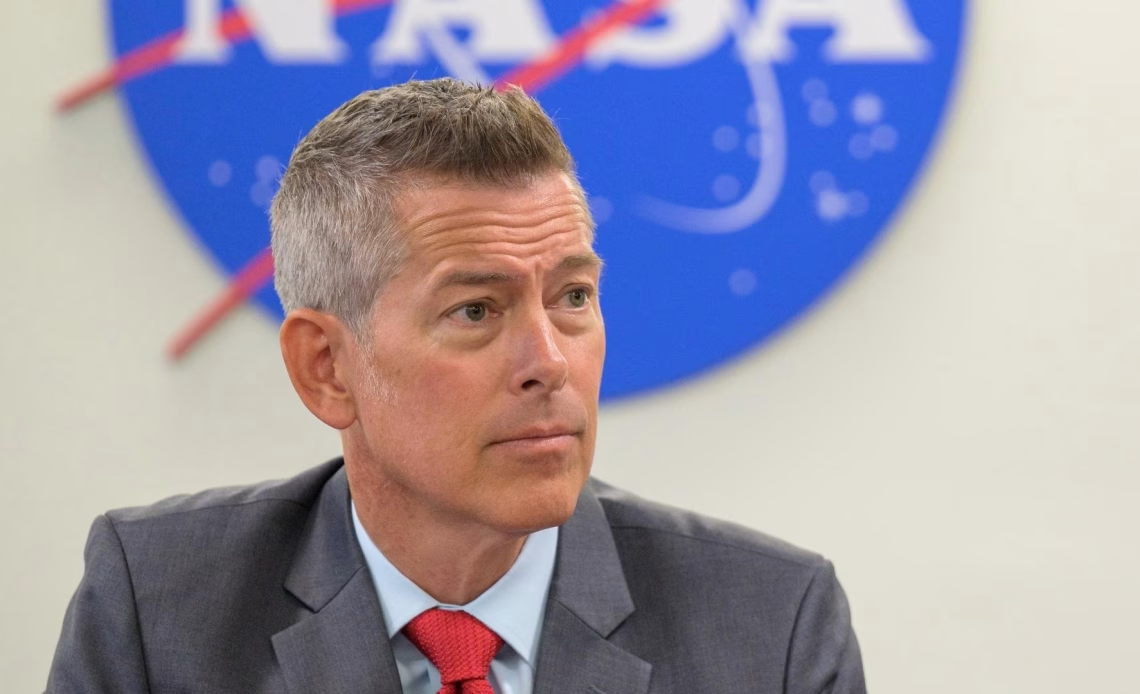NASA’s acting administrator is pushing back against recent claims that the agency is losing ground to China in the race back to the moon.
Sean Duffy addressed employees in an internal NASA town hall last week, just one day after Senate testimony suggested that China may land astronauts at the lunar south pole before the U.S. does so. “I’ll be damned if that is the story that we write,” Duffy said. “We are going to beat the Chinese to the moon. We are going to do it safely. We’re going to do it fast. We’re going to do it right.”
Duffy’s remarks were a direct response to testimony delivered at a Sept. 3 Senate Commerce Committee hearing titled “There’s a Bad Moon on the Rise.” During the hearing, several witnesses, including former NASA Administrator Jim Bridenstine and Mike Gold, the former acting associate administrator for NASA’s Office of International and Interagency Relations, warned that China’s lunar exploits could soon surpass America’s.
NASA’s Artemis program aims to return astronauts to the moon as a proving ground for future missions to Mars. Artemis 2 is the program’s first crewed test flight of the Orion spacecraft, and will carry the first humans to visit the moon since the final Apollo mission in 1972.
Artemis relies on the massive Space Launch System (SLS) rocket. Artemis 2’s SLS will soon complete its assembly inside the Kennedy Space Center’s Vehicle Assembly Building, and is scheduled to launch no earlier than February 2026. The mission is designed as a lunar flyby, ferrying NASA astronauts Reid Wiseman, Christina Koch and Victor Glover, as well as Canadian Space Agency (CSA) astronaut Jeremy Hansen, on a free-return trajectory around the moon and back to Earth.
If NASA sticks to its current schedule, Artemis 3 will be the first mission of the program to land astronauts on the lunar surface — specifically, near the moon’s south pole. NASA has slated Artemis 3 to launch sometime in 2027, but it’s unclear if the agency will meet that target.
China is working on a similar timeline and is making real progress, a point that several witnesses made during the Sept. 3 Senate hearing.
“It is highly unlikely that we will land on the moon before China,” Bridenstine told lawmakers. Both he and Gold expressed concern that delays in Artemis and budget uncertainty could allow China to reach the moon first and define international norms there.
“If they…
Click Here to Read the Full Original Article at Latest from Space.com…

